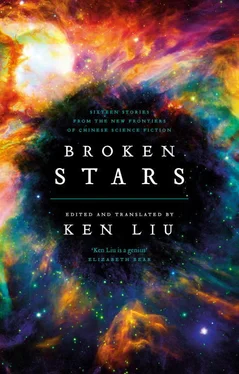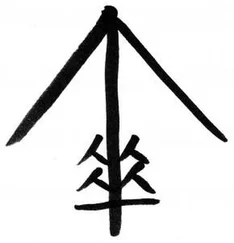Most child development authorities informed parents that brains in the process of maturation, while synapses were still in their formative stages, were most receptive to new information and held enormous potential for future capacity.
Homo sapiens , with its long juvenile stage, pulled ahead in the primate evolutionary race and achieved first place. We retain our juvenile features, such as the lack of body hair and a disproportionately large head, into adulthood. Similarly, we hold on to childish cognitive characteristics such as curiosity and a desire to learn throughout our lives. Some people even have a genetic mutation that allows them to keep generating all through adulthood the lactase necessary to digest milk, an ability generally lost once children are weaned—indeed, they call other humans without the mutation the “lactose-intolerant,” as though they have a disorder.
Neoteny was critical to our species; was it time for a second wave?
The scientific world wished to take advantage of this opportunity to push human evolution forward, but they were faced with a legal problem. Patients affected by the developmental disorder were legally adults, but their physiology and psychology remained childish. Controversy erupted over whether the patients had the capacity to agree to be experimental subjects on their own, or whether it was necessary to secure the permission of guardians. As the issue dragged out in the courts, online mobs exposed the personal information of the patients’ relatives and derisively criticized them as “selfish monkeys.” The online mobs argued that those who, out of concern for their own security, ignored the far greater mission of advancing the human race did not deserve to be called sapiens . Historically, of course, such arguments had been raised again and again, like recurring waves in the river of time.
In the end, logic won over emotion. States assumed responsibility as guardians of the patients. After signing human experimentation agreements on behalf of their wards, the governments purchased expensive insurance and named the patients’ relatives as beneficiaries, by way of compensation. Everyone shut up, and the experiments could finally proceed.
Like an upgraded version of the therapists in A Clockwork Orange , scientists prodded and poked and stimulated the patients in various ways, injecting them with torrents of information. They couldn’t wait to expose the experimental subjects to the entirety of human knowledge and history during their long-but-still-all-too-brief periods of plasticity, hoping to stimulate the formation of more complex synaptic connections in the human brain, which had not evolved in ages, and thereby push back the frontiers of knowledge and derive solutions for the many complicated problems plaguing humanity. Subconsciously, the researchers thought of themselves as God, hoping to create a new race of Man on the sixth day.
They ended up with bedlamites, imbeciles, depressives, sex addicts, and vegetables.
The arrogant researchers didn’t even know where they had gone wrong. They did not understand the secret of the genetic switches; they were not the ones who had set the trap.
Humans had once tamed wolves into dogs. They tried to breed canid adults to retain juvenile features such as floppy ears, short snouts, large eyes, playfulness, the desire to please people, and to eliminate the bloodthirst and ferocity of the mature wolf. Humans did this not because they wanted to help wolves evolve into Canis sapiens ; they simply wanted to bend the wolves to human aesthetics.
It was a misunderstanding over a subtle—if rather sick—preference for cuteness.
RITUAL DEPENDENCY/WITHDRAWAL
You walk a long way to the newsstand and ask for the magazine; you pay for it, put it in your bag, and after a long journey involving various forms of transportation, return to a secluded space; you turn on the light, orange or pale white, and rip open the nonbiodegradable plastic wrap; you pour yourself a cup of tea, or open a can of diet soda; you caress the pattern in the paper and, deliberately or randomly, open the magazine to this page.
You start to read. When you’re done, you’re thoughtful or weary; you tell others to read or not read this story.
You have completed one insignificant ritual out of the millions in your life.
Humans are ritualistic animals. From the ancient past to the present, from cradle to grave. Rituals solidify in our minds, glue together groups and cultures, chase away the terror of death, help us find our places, define the meaning of existence. The powerful in every culture have used rituals to assemble multitudes, to extract wealth, to form parties and factions, to consolidate rule. Rituals give endless labels to people, in addition to their names, telling them where they belong, but in the end there was no label for the self.
In my era, technology allows ritual to become an indivisible part of everyday life. It’s implanted into you and becomes part of your genetic heritage to be passed on to your children and their children, multiplying and mutating, more vigorous than its host.
Maybe it’s true in your age as well?
You cannot control the impulse to refresh the page. Information explosion brings anxiety, but can fill your husk of a soul. Every fifteen seconds, you move the mouse, open up your social networking profile, browse the comments, retweet and reblog, close the page, and do it all over again fifteen seconds later. You can’t stop.
You can no longer talk to people in real life. Air has lost its role as the medium for transmitting voice. You sit in a ring, your eyes glued to the latest mobile device in your hand as though worshiping the talisman of some ancient god. Your thoughts flow into virtual platforms through the tips of your fingers. You’re arguing, laughing, flirting, joking. But reality around you is a silent desert.
You cannot free yourself from the control of artificial environments. Ritual is omnipresent. It is no longer restricted to sacrifice, sermon, mass, concert, or game—performed on a central stage where the classical unities hold. Ritual itself is evolving, turning into distributed cloud computing, evenly spread out into every nook and cranny of your daily life. Sensors know everything and regulate the temperature, humidity, air currents, and light around you; adjust your heart rate, hormonal balance, sexual arousal, mood. Artificial intelligence is a god: you think it’s there for your welfare, bringing you new opportunities, but you’ve become the egg in the incubator, the marionette attached to wires. Every second of every minute of every day, you are the sacrifice that completes this unending, grand ritual.
You are the ritual.
Radical thinkers obsess over how to withdraw from all this. The power of ritual comes from repetition, not its content. Day after day, the repetition of poses and movements gradually seeps into the depth of consciousness, like a hard drive’s read-write head repeatedly tracing the pattern of an idea, until the idea becomes indistinguishable from free will itself. It’s like that sci-fi flick from the beginning of the twenty-first century. Romantic love is ritual’s most loyal consumer, along with patriotism.
The radicals try to imitate the Luddites of old: destroy the machines, hack into systems, awaken the people, exhort everyone to abandon technology and return to the wilderness, where everyone can sharpen their character against the grindstone of severe nature and hope to recover a primitive, pure simplicity. The media, rather mercilessly, point out that what they are advocating is a good fit for the ritualistic habits practiced by Zen Buddhists of seventh-century Japan.
The only thing that can be done is to do nothing.
Читать дальше












